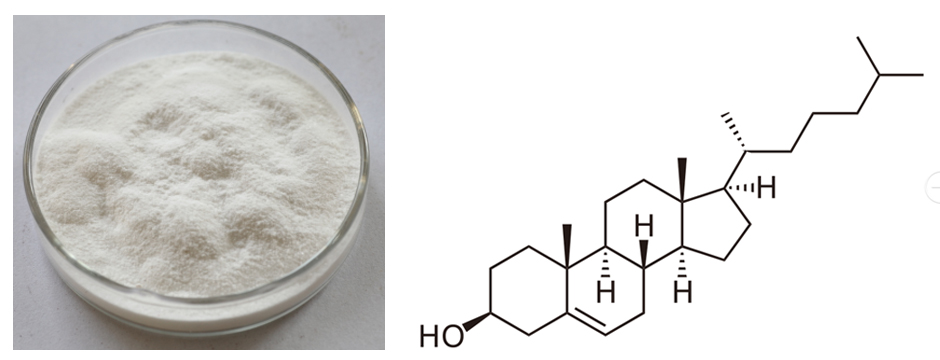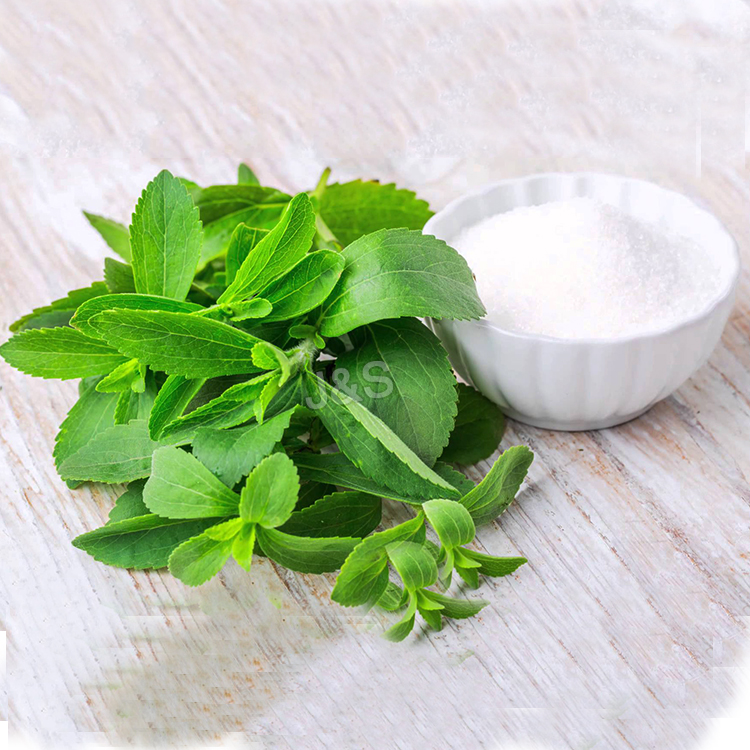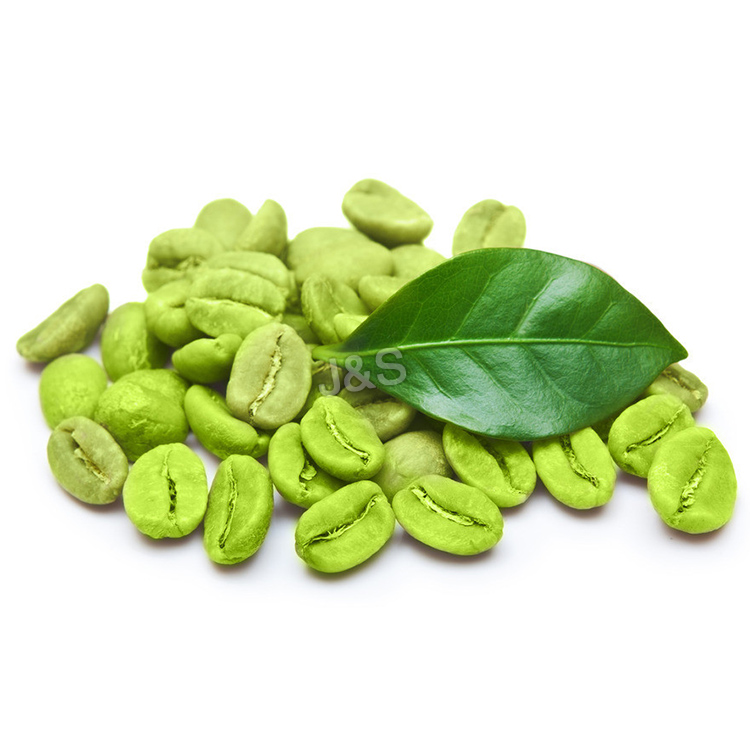Super Purchasing for Phytosterol Wholesale to Anguilla
Super Purchasing for Phytosterol Wholesale to Anguilla Detail:
[Latin Name] Glycine max(L.) Mere
[Specification] 90%; 95%
[Appearance] White powder
[Melting point] 134-142℃
[Particle size] 80Mesh
[Loss on drying] ≤2.0%
[Heavy Metal] ≤10PPM
[Storage] Store in cool & dry area, keep away from the direct light and heat.
[Shelf life] 24 Months
[Package] Packed in paper-drums and two plastic-bags inside.
[Net weight] 25kgs/drum
[What is Phytosterol?]
Phytosterols are compounds found in plants that resemble cholesterol. The National Institutes of Heath report that there are over 200 different phytosterols, and the highest concentrations of phytosterols are found naturally in vegetable oils, beans and nuts. Their benefits are so recognized that foods are being fortified with phytosterols. At the supermarket, you may see orange juice or margarine advertising phytosterol contents. After reviewing the health benefits, you may want to add phytosterol-rich foods to your diet.
[Benefits]
Cholesterol-Lowering Benefits
The most well-known, and scientifically proven, benefit of phytosterols is their ability to help lower cholesterol. A phytosterol is a plant compound that is similar to cholesterol. A study in the 2002 issue of “Annual Review of Nutrition” explains that phytosterols actually compete for absorption with cholesterol in the digestive tract. While they prevent the absorption of regular dietary cholesterol, they themselves are not easily absorbed, which leads to a total lower cholesterol level. The cholesterol-lowering benefit does not end with a good number on your blood work report. Having lower cholesterol leads to other benefits, such as a reduced risk for heart disease, stroke and heart attacks.
Cancer Protection Benefits
Phytosterols have also been found to help protect against the development of cancer. The July 2009 issue of the” European Journal of Clinical Nutrition” offers encouraging news in the fight against cancer. Researchers at the University of Manitoba in Canada report that there is evidence that phytosterols help prevent ovarian, breast, stomach and lung cancer. Phytosterols do this by preventing the production of cancer cells, stopping the growth and spread of cells that are already in existence and actually encouraging the death of cancer cells. Their high anti-oxidant levels are believed to be one way phytosterols help fight cancer. An anti-oxidant is a compound that fights free radical damage, which is negative effects on the body produced by cells that are unhealthy.
Skin Protection Benefits
A lesser known benefit of phytosterols involves skin care. One of the contributing factors in the aging of the skin is the breakdown and loss of collagen — the main component in connective skin tissue — and sun exposure is a major contributor to the problem. As the body ages, it is not able to produce collagen as it once did. The German medical journal “Der Hautarzt” reports a study in which various topical preparations were tested on skin for 10 days. The topical treatment that showed anti-aging benefits to the skin was the one that contained phytosterols and other natural fats. It is reported that phytosterols not only stopped the slow-down of collagen production that can be caused by the sun, it actually encouraged new collagen production.
Product detail pictures:

Related Product Guide:
We now have several exceptional workers customers good at marketing, QC, and working with types of troublesome trouble during the creation system for Super Purchasing for Phytosterol Wholesale to Anguilla , The product will supply to all over the world, such as: luzern, United States, Moldova, We offer OEM services and replacement parts to meet the varying needs of our customers. We offer competitive price for quality products and we will make certain your shipment is handled quickly by our logistics department. We sincerely hope to have the opportunity to meet with you and see how we can help you further your own business.
QAAFI SCIENCE SEMINAR SERIES
28 March 2017
DESCRIPTION
The structure and material properties of growing and fleshy plant tissues are determined by their (primary) cell walls. The biological requirement in growing tissues for cell walls to combine structural strength with flexibility and extensibility is met through a network of cellulose fibres in a hydrogel form that is modified by the presence of other polysaccharides. From direct measurement on isolated plant cell walls and using a model bacterial cellulose hydrogel system, the molecular rules governing the association of non-cellulosic polysaccharides with cellulose fibres have been deduced. The effects of various features of cell wall hydrogels on the characteristic material properties under small deformation, compression and extension have been characterized and rationalized. Consequences for plant material properties and plant food behavior in the digestive tract will be discussed.
About Prof. Mike Gidley
Professor Mike Gidley is Director of the Centre for Nutrition and Food Sciences (CNAFS) in QAAFI. Prof. Gidley’s career includes 22 years in food R&D in the private sector and the last 13 years at UQ in the Centre for Nutrition and Food Sciences.
Research themes within CNAFS include ‘Smart Selections’ (how to identify the right combinations of raw materials and processing to deliver consumer-preferred foods), ‘Naturally Nutritious’ (maximising the intrinsic nutritional properties of agricultural products in foods and ingredients) and ‘Uniquely Australian’ (identifying and validating opportunities for elite products from foods and ingredients that can only have come from Australia).
Prof. Gidley’s own research is focused on structure – function relationships in important food components such as starch granules and plant cell walls. This has led to the detailed characterisation of starch and dietary fibre digestion/fermentation in vitro and in vivo, with the understanding generated leading to opportunities for optimising nutritional value of foods and feeds. He is a Program Leader in the Australian Research Council Centre of Excellence in Plant Cell Walls (2011-2017)
SUBSCRIBE:
https://www.vision6.com.au/em/forms/subscribe.php?db=398137&s=117697&a=45549&k=387aedc
WEB: https://qaafi.uq.edu.au/
Title: Craft materials to overcome ocular barriers
4th International Conference on
Clinical & Experimental Ophthalmology
July 14-16, 2014 DoubleTree by Hilton Baltimore, USA
OMICS International: https://omicsonline.org
Vaccine Conferences: https://conferenceseries.com/immunology-conferences.php
Global Medical Conferences: https://conferenceseries.com
Global Pharmaceutical Conferences: https://pharmaceuticalconferences.com
Global Cancer Conferences: https://cancersummit.org
Global Diabetes Conferences: https://diabetesexpo.com
Global Dental Conferences: https://dentalcongress.com
Global Nursing Conferences: https://nursingconference.com
Abstract:
While new therapeutics are being developed for treating ocular diseases, the use of these therapeutics is still hampered by the need for more effective method of delivery. The reason is that these therapeutics have short half-lives, do not or hardly cross the cornea, the blood retinal barrier (BRB) and other ocular barriers, and can cause toxicity and side effects at high dose. In our Biomaterials for Translational Research Laboratory, we are interested in engineering multi-functional polymeric systems for targeted and sustained delivery of desired amount of drugs across ocular barriers to treat anterior and posterior eye diseases. In this talk, I will discuss our collaborative researches in developing i) hydrogels as subconjunctivally implantable delivery systems for sustained release of insulin to treat diabetic retinopathy; and ii) polysaccharide based nanoparticles for enhanced drug permeability across the cornea and the BRB to treat diabetic retinopathy, retinoblastoma, and glaucoma, etc.
Biography:
Tao Lowe is an Associate Professor of Pharmaceutical Sciences and Biomedical Engineering at University of Tennessee. Previously, she was an Assistant Professor of Surgery, Bioengineering, and Materials Science and Engineering, and Co-Director of the Integrated Graduate Degree Molecular Toxicology Program at Pennsylvania State University. She received her Ph.D. with an Eximia Cum Laude from the University of Helsinki, Finland, and conducted two years’ postdoctoral research in the Chemical Engineering Department at University of Wisconsin, Madison. She has published more than two dozen papers in reputed journals, and has given more than 150 presentations and 60 invited talks. She has trained ca. 60 students, including PhD, MD, MD/PhD, PharmD, and PharmD/PhD. She is a peer reviewer for more than 30 refereed journals, and serves on the editorial boards of 6 international journals. She has chaired more than 40 sessions at international conferences.
We are really happy to find such a manufacturer that ensuring product quality at the same time the price is very cheap.






